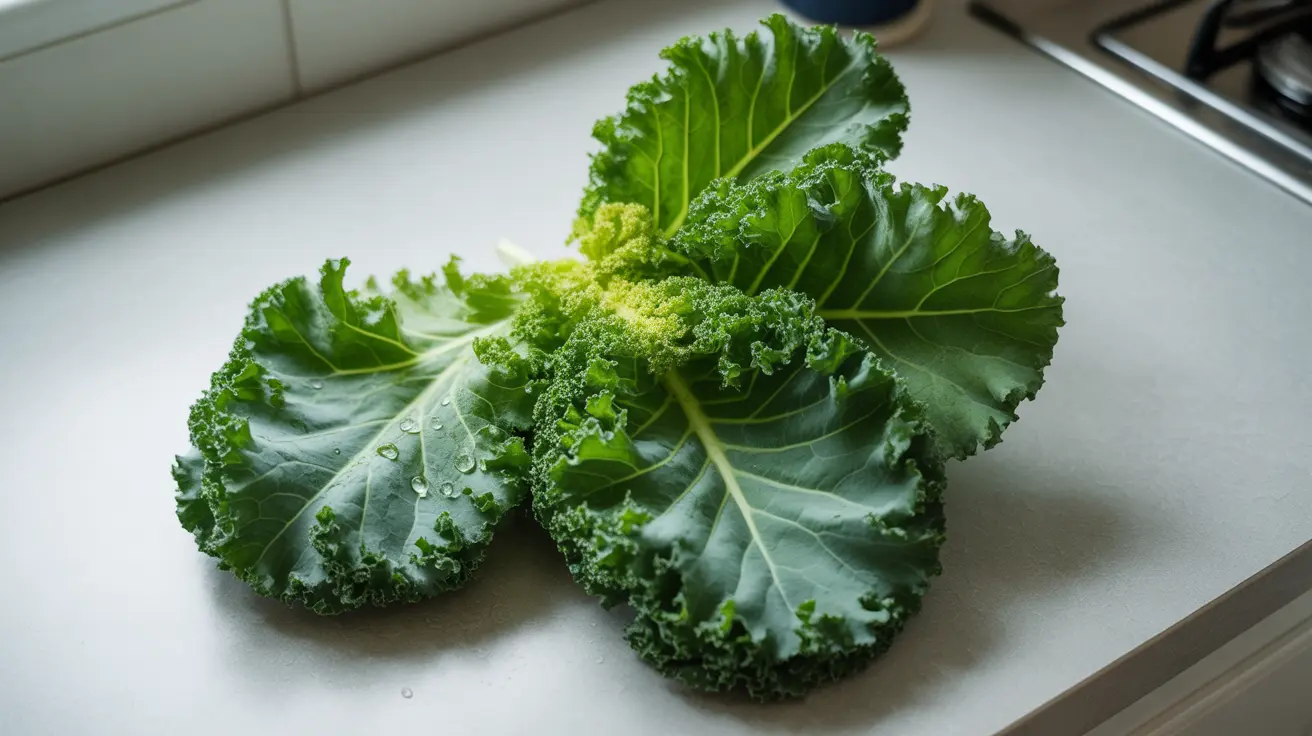Kale has earned its reputation as one of nature's most potent superfoods, packed with an impressive array of vitamins, minerals, and beneficial compounds that can significantly enhance your overall health. This leafy green powerhouse has become increasingly popular in modern nutrition, and for good reason - its diverse nutritional profile offers multiple health benefits that can support everything from immune function to eye health.
Understanding the full spectrum of kale's health advantages can help you make informed decisions about incorporating this versatile vegetable into your daily diet. Let's explore the science-backed benefits of kale and discover how this remarkable green can contribute to your wellness journey.
Nutritional Profile of Kale
Kale stands out among leafy greens for its exceptional nutritional density. A single cup of raw kale contains more than your daily requirement of vitamins K and A, along with substantial amounts of vitamin C, manganese, and calcium. It's also rich in antioxidants like quercetin and kaempferol, which help combat oxidative stress in the body.
- Fiber for digestive health
- Iron for oxygen transport
- Potassium for blood pressure regulation
- Folate for cell growth
- Omega-3 fatty acids for brain health
Immune System Support and Disease Prevention
The high concentration of vitamin C and antioxidants in kale makes it a formidable ally in strengthening your immune system. These compounds help neutralize harmful free radicals and support the production and function of white blood cells, your body's primary defense against infections.
- Reduce inflammation throughout the body
- Strengthen natural immune responses
- Protect cells from oxidative damage
- Support faster recovery from illness
Heart Health Benefits
Kale contains several compounds that support cardiovascular health. Its high potassium content helps regulate blood pressure, while its fiber content can help lower cholesterol levels. The presence of anti-inflammatory compounds in kale also helps protect against heart disease by reducing arterial inflammation.
Vision and Eye Health Protection
The lutein and zeaxanthin in kale are particularly beneficial for eye health. These carotenoids accumulate in the retina, where they help filter harmful high-energy light waves and protect against age-related eye conditions. Regular consumption of kale may help prevent macular degeneration and maintain overall vision health as you age.
Weight Management and Metabolic Health
For those focused on weight management, kale is an excellent dietary choice. Its high fiber content promotes satiety, helping you feel full longer while consuming fewer calories. The vegetable's low caloric density and high nutrient content make it an ideal food for:
- Supporting healthy weight loss
- Maintaining stable blood sugar levels
- Improving metabolic health
- Providing sustained energy throughout the day
Frequently Asked Questions
What are the health benefits of incorporating kale into my diet regularly?
Regular kale consumption can boost your intake of essential nutrients, support immune function, promote heart health, protect vision, aid in weight management, and provide anti-inflammatory benefits throughout your body.
Can kale help support my immune system and reduce the risk of infections?
Yes, kale's high vitamin C content and powerful antioxidants help strengthen your immune system, support white blood cell function, and protect against various infections.
Is kale a good food choice for managing blood pressure and reducing heart disease risk?
Absolutely. Kale's potassium content helps regulate blood pressure, while its fiber and anti-inflammatory compounds support overall heart health and help reduce cardiovascular disease risk.
How does kale support eye health and prevent age-related macular degeneration?
Kale contains lutein and zeaxanthin, which protect the retina from damage and help prevent age-related vision problems, including macular degeneration.
Can adding kale to my meals help with weight loss and weight management?
Yes, kale's high fiber content and low calorie density make it an excellent food for weight management, helping you feel satisfied while consuming fewer calories overall.
Remember, while kale is incredibly nutritious, it's most beneficial as part of a varied, balanced diet. Consider incorporating different preparation methods to maximize both its nutritional benefits and your enjoyment of this versatile vegetable.




